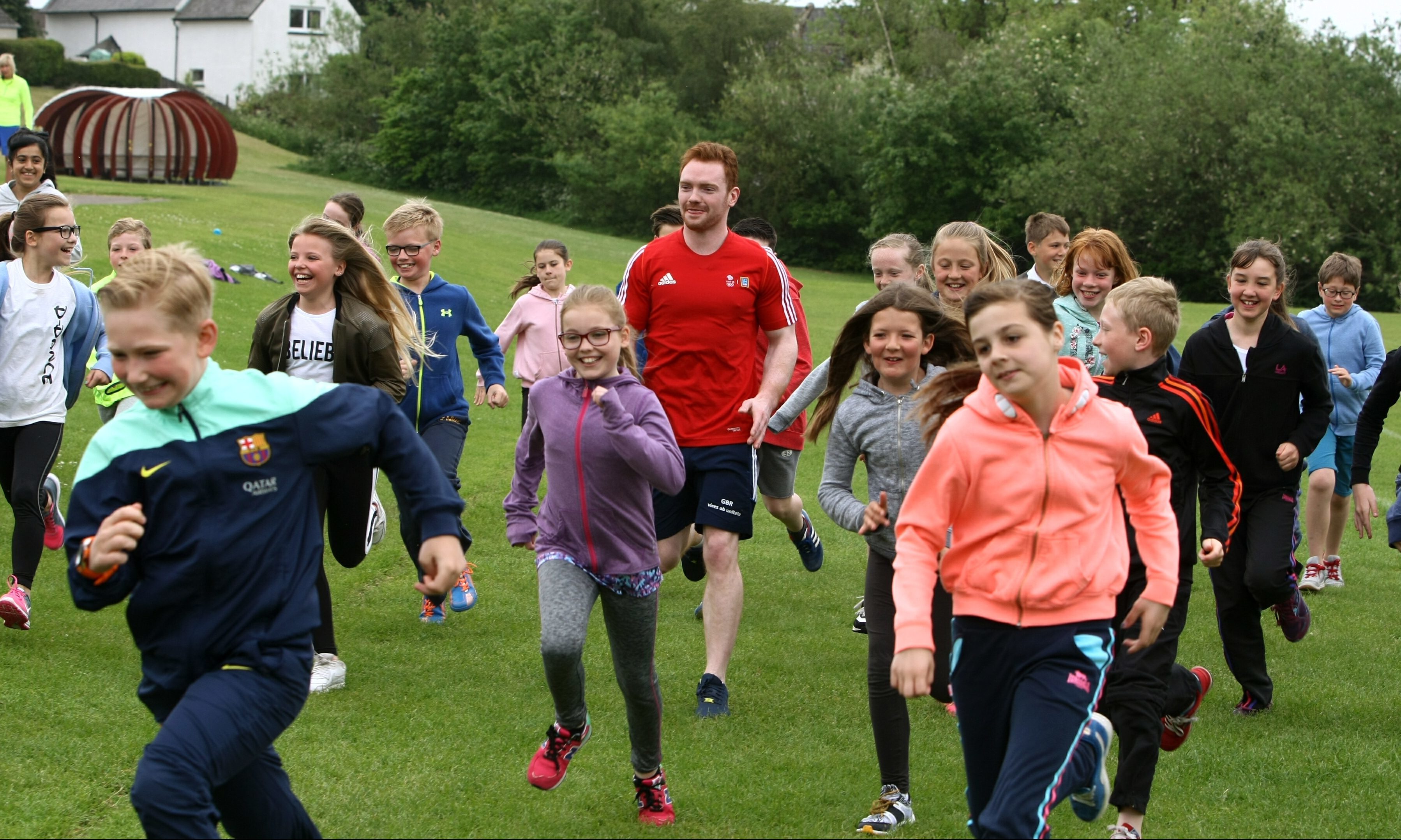Scotland’s children are some of the least active in the world, despite having one of the best environments for playing outdoors, international research has suggested.
A study of 38 nations ranked the country joint-last for physical activity and time spent in front of screens.
Scotland was ranked joint-second for national policy on physical activity and joint-fourth for a safe and accessible environment.
Obesity levels in Scotland are projected to reach 40% by 2030, with poor diet, lack of exercise and sedentary lifestyles identified as key factors.
The nations assessed in the study were scored on various indicators including overall physical activity, participation in organised sport, active play and sedentary behaviour.
Government strategies, investment, communities and the environment were also graded.
For physical activity, Scotland ranked last alongside Chile, Estonia, Qatar, China and the UAE, while for screen time the country was last alongside Venezuela, Canada, Estonia, South Korea and China.
For national policy on physical activity, Denmark came first, with Scotland in second place alongside Finland, Sweden, Canada, Wales and Colombia.
The study – the Active Healthy Kids Report Card – found that protective parents can often restrict kids from being physically active in Scotland.
More than 80% of Scottish children exceed the recommended limit of two hours screen time per day while less than 20% are sufficiently active.
The study recommends more evaluation of the way physical activity policy is implemented in Scotland and greater measurement of children’s physical activity and sedentary behaviour.
Professor John Reilly, of the University of Strathclyde’s School of Psychological Sciences and Health, led the Scottish research.
He said: “Scotland has one of the world’s very best natural environments, facilities offering ideal conditions for physical activity and much has been done to develop policies which encourage children to take part.
“However, there still appears to be a culture of low physical activity in Scotland.”
He added: “There are examples of this issue being dealt with in other nations.
“In Slovenia, for example, primary schools offer access to nearly 80 minutes of in-school, professionally-supported physical activity each day. In Denmark, it is compulsory to receive 45 minutes of physical activity per school day.”
Public health minister Aileen Campbell said: “We want to do more to challenge sedentary behaviour and increase physical activity levels of young people, and that is why we’re committed to provide even more opportunities for children to be active.
“We have concerns over some of the methodology used in calculating physical activity levels within this report card but welcome the acknowledgement that Scotland has excellent facilities and infrastructure in place for physical activity.”
She highlighted investment in school sport to increase the number of children taking part in two hours of PE each week, £132 million spent on facilities since 2007 and plans to introduce the “daily mile” to all schools across Scotland.
The findings of the global study were due to be unveiled in Bangkok on Wednesday.








